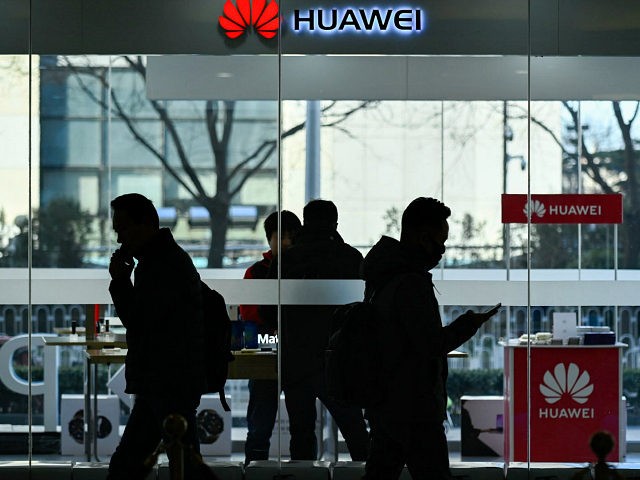The technical body that makes assessments on threats to British security will undertake a review of Huawei’s involvement in the building the UK’s 5G network, following the Trump administration imposing sanctions on the Chinese tech giant.
The National Cyber Security Centre (NCSC), part of the signals intelligence service the Government Communications Headquarters (GCHQ), revealed on Sunday that it was conducting the review after the U.S. imposed sanctions which restricts Huawei from using American software and technology to design its semiconductors. The U.S. cited security concerns and the flouting of American regulations.
“The security and resilience of our networks is of paramount importance. Following the US announcement of additional sanctions against Huawei, the NCSC is looking carefully at any impact they could have to the UK’s networks,” an NCSC spokesman told the BBC on Sunday.
The National Security Council had reportedly made the decision on Tuesday after the U.S. announced sanctions against the Chinese company.
The security review is concerned with the additional risks that could be posed to UK networks if Huawei, as a result of the U.S. sanctions, builds their components with cheaper — likely Chinese-made — and less secure elements which cannot be verified in the same manner.
In January, Prime Minister Boris Johnson announced that the government would allow the Chinese tech firm to build part of the UK’s 5G network, with its involvement capped at 35 per cent and only on the “peripheries”, not the “sensitive parts” of the country’s telecommunications networks.
The decision came despite warning from intelligence-sharing partners in the Five Eyes (the UK, U.S., Australia, New Zealand, and Canada) and Conservative MPs that Huawei was capable of building a backdoor into the UK’s systems, allowing the “effectively state-owned” Chinese company to spy for Beijing.
Report: Boris Backtracks On Huawei 5G Deal, Zero China Involvement by 2023 https://t.co/DQ5beiRXjC
— Breitbart London (@BreitbartLondon) May 24, 2020
The NCSC’s review has been welcomed by Tory MPs opposed to Huawei’s involvement in Britain’s 5G. The government was facing a backbench revolt, with Bob Seely MP saying that there were “now 59 MPs” in the Huawei Interest Group, which media reports is more than needed to defeat the Johnson administration on any bill seeking to approve Huawei’s association.
A leaked report from late last week also revealed that Mr Johnson was reconsidering his decision on the Chinese tech giant and that “officials have been instructed to come up with a plan to reduce Huawei’s involvement as quickly as possible.”
It is believed the review will result in the UK formally distancing Huawei from sensitive British telecommunications infrastructure. Whitehall sources had told The Guardian that as a result of U.S. sanctions, any security review would deem Huawei a risk.
Sir Iain Duncan Smith MP told The Telegraph on Monday that “this review has one purpose of how to get Huawei out of the system and not whether we should”.
Sir Iain continued: “Huawei has to be taken out of our systems. We can no longer be dependent on an untrusted vendor in a country that has an appalling record of theft on intellectual property and human rights. We shouldn’t be putting our most vital communications strategy in their hands.”
Matthew Henderson of the Henry Jackson Society, a neoconservative think tank which takes a hard line on Chinese domination, said: “This review is recognition that the government’s previous position on Huawei was untenable, both due to the scale of opposition in parliament and from our allies.”
UK to Explore Self Sufficiency to End Reliance on China https://t.co/5d6ngNVI9d
— Breitbart London (@BreitbartLondon) May 25, 2020

COMMENTS
Please let us know if you're having issues with commenting.